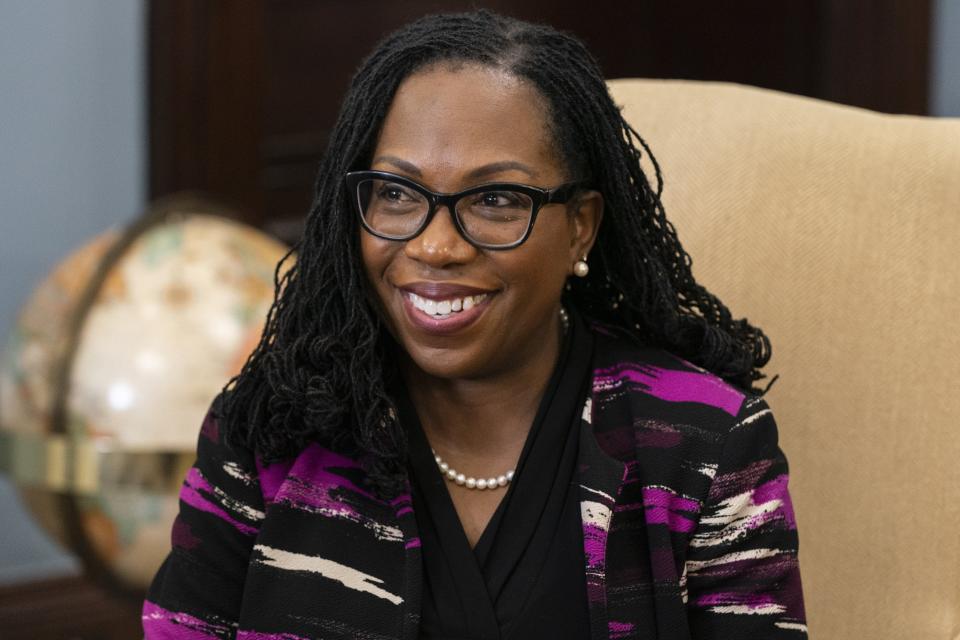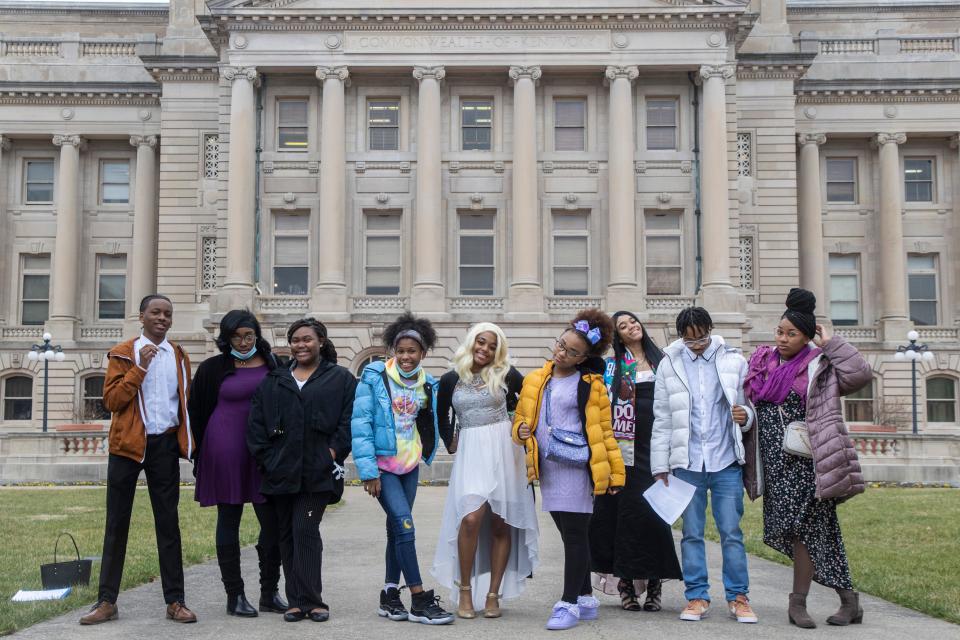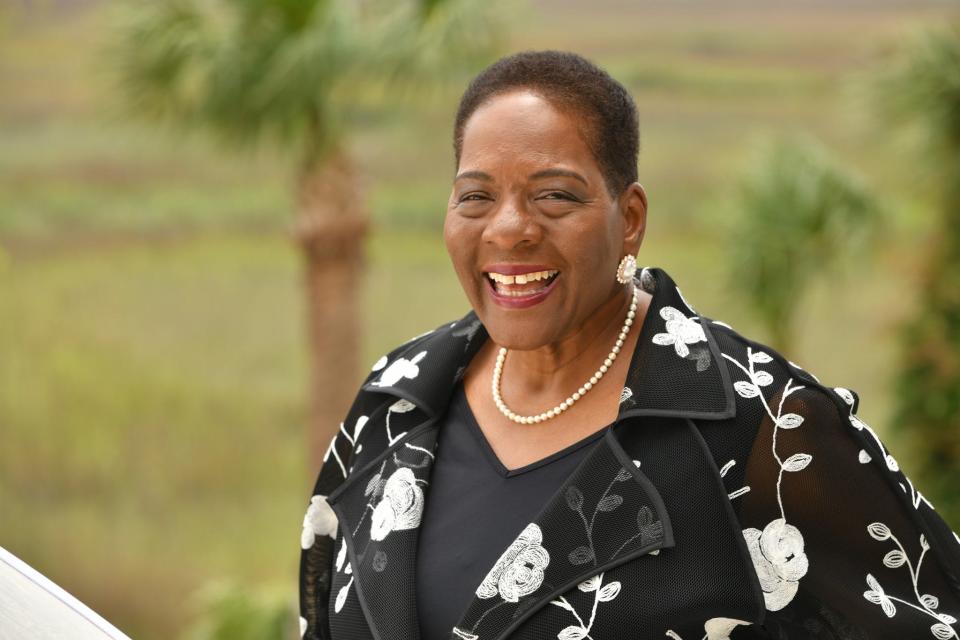Wanda Lloyd: Pass the CROWN Act to help fight discrimination against Black hairstyles
This is a column by Wanda Lloyd, a retired newspaper editor and author of “COMING FULL CIRCLE: From Jim Crow to Journalism.”
While watching the Senate hearings for Ketanji Brown Jackson’s nomination to the Supreme Court, something besides the federal judge’s responses to tough, sometimes combative questions stood out: Her hairstyle of choice, tiny-sized dreadlocks known as “sisterlocks” are a reminder that the Senate has before it another matter that would protect men and women who choose to wear natural hairstyles that have often been scorned, if not forbidden in schools, workplaces and public spaces.
On March 18, the House passed the CROWN Act, which stands for "Creating a Respectful and Open World for Natural Hair." The bill moved to the Senate, where it faces an uncertain fate. Georgia’s Rafael Warnock and 16 other senators have co-sponsored the bill that will hopefully go before President Biden for his signature.
The CROWN Act is already law in 12 states, led by California, which passed it in 2019. In Georgia, five communities - Clayton County, East Point, Gwinnett County, South Fulton and Stockbridge - have made it illegal to discriminate against African Americans based on wearing natural hairstyles.

In the 1990s, when I was a senior editor at USA Today, we hired an ambitious young African American man as a temporary news aide, a position that supported reporters and editors. The young man, who wore locks that fell below his shoulders, was a recent college graduate who was mapping out his career and applying for jobs in the stodgy Washington, DC, area. One day he scheduled a career conversation with me, and he shared some of the difficulties of his job search. His interviews and testing were going well, he told me, but he wasn't getting job offers.
Then he came right out with this question: “Do you think my locks are holding me back?” I admitted that from my knowledge and experience, corporate values are often Eurocentric and discriminatory against African American schoolchildren and adults with natural hairstyles. Hiring managers and school administrators may see African Americans with natural hairstyles as different, even sometimes radical, militant or off-putting to corporate customers.
More from Wanda Lloyd: Andrew Young turns 90 - and builds on his legacy as one of Georgia's great leaders
Years after the news aide left the newspaper, I ran into him at a conference and he re-introduced himself. He told me he took my advice, cut the locks out of his hair, and his career path was soon lined with job opportunities. This was a sad commentary on the times, but he said he appreciated the frankness of our conversation. Cutting his hair was enough to get his foot in the door, and he was able to build relationships before deciding whether to regrow his locks.
A federal CROWN Act would protect people like this young man and many others who have had to make the decision between employment or their cultural values. More than 40 years ago, legendary Atlanta TV anchor Monica Kaufman Pearson defied contractual and corporate requirements about appearance when she showed up at her station one day with an Afro.

“I went on vacation, and when I came back it was hot as hell,” she told me in a podcast interview last summer. “I just decided I’m going to go in (with the Afro) and see what happens.” Pearson said her news director told her, “That’s not attractive on the air.” Pearson stood her ground and returned the next day with the same hairstyle. However, it was years - decades for some - before broadcast journalists would show up in large numbers with natural hairstyles. Some still don’t and, of course, the issue goes far beyond journalism.
More about the issue: Banning ethnic hairstyles 'upholds this notion of white supremacy.' These states are passing laws to stop it
In 2010, a woman named Chastity Jones was told she had to cut off her locks or her customer service representative job offer at an Alabama insurance company would be rescinded. “They (locks) tend to get messy,” a company manager was quoted as saying at the time. The Equal Employment Opportunity Commission (EEOC) filed a suit on Jones’s behalf in 2013 and lost. In 2016, the 11th Circuit Court of Appeals upheld the district court’s ruling and dismissed the case. Lawsuits seeking protection for natural hairstyles in the workplace have filled court dockets for decades. Now it’s time to do away with the gap in protections.

If the Senate drops the ball and the bill fails in Congress, Georgia lawmakers should prioritize statewide CROWN Act legislation. We need protection from discrimination in many aspects of life. From a Supreme Court justice nominee who wears braids to the tiniest Black girl or boy in grade school, the choice to wear natural hairstyles should be the last thing children or adults should have to fear.
This article originally appeared on Savannah Morning News: CROWN Act would prohibit discrimination against Black hairstyles

